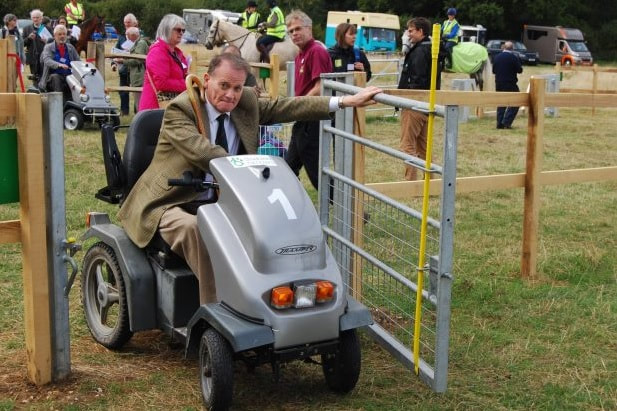Securing Planning Permission On Behalf Of Natural England’s New National Land Access Centre
There are 140,000 miles of public rights of way in England and Wales. A palimpsest network laid down over the last two millennia it is the jewel in the crown of our countryside and unmatched around the world.
Despite this it is largely inaccessible to 20% of the population.
This is simply because traditional methods of delineating boundaries and managing livestock through the use of stiles, kissing gates and other physical barriers can be impassable to people with mobility issues and people accompanying them.
To facilitate access, “BS5709:2018 Gaps, Gates and Stiles” was produced to help anyone involved in the management of the countryside to choose and implement the least restrictive option for land management needs in a given situation.

The principles enshrined within BS5709:2018 have already been introduced by Natural England across the Chilterns AONB. Through the removal of traditional physical restrictions in favour of less restrictive public access solutions, miles of public right of way which were once inaccessible to many people through traditional physical restrictions have been opened to people who would previously have been excluded from enjoying the landscape owing to a physical disability.
To facilitate the spread of BS5709:2018 across the country, Natural England believed that those involved in the management of the countryside would benefit from seeing its principles demonstrated in action, together with the provision of advice and training to countryside managers.
Believed to be the first of its kind in the country, the National Land Access Centre has been developed by Natural England within the Chilterns AONB. Visitors to the NLAC are able to access specialist equipment, try out new designs which facilitate access, test examples in situ and fully understand how the principles of BS5709:2018 work in practice so that these ideas can be transposed and introduced across the nation. Training courses are also run for countryside managers which cover the selection of the best equipment to minimise physical restriction to access, its installation and ongoing maintenance. In time the dissemination of the principles which the NLAC supports will spread across the country, resulting in a countryside of ever greater accessibility for everyone to enjoy
Today we received Planning Permission for the NLAC from South Oxfordshire which cements the future of this important project.
As the son of a man who gets up every morning to show Motor Neurone Disease just who is in charge, I am incredibly proud to have played a small part in helping this extraordinary and forward thinking project along.


